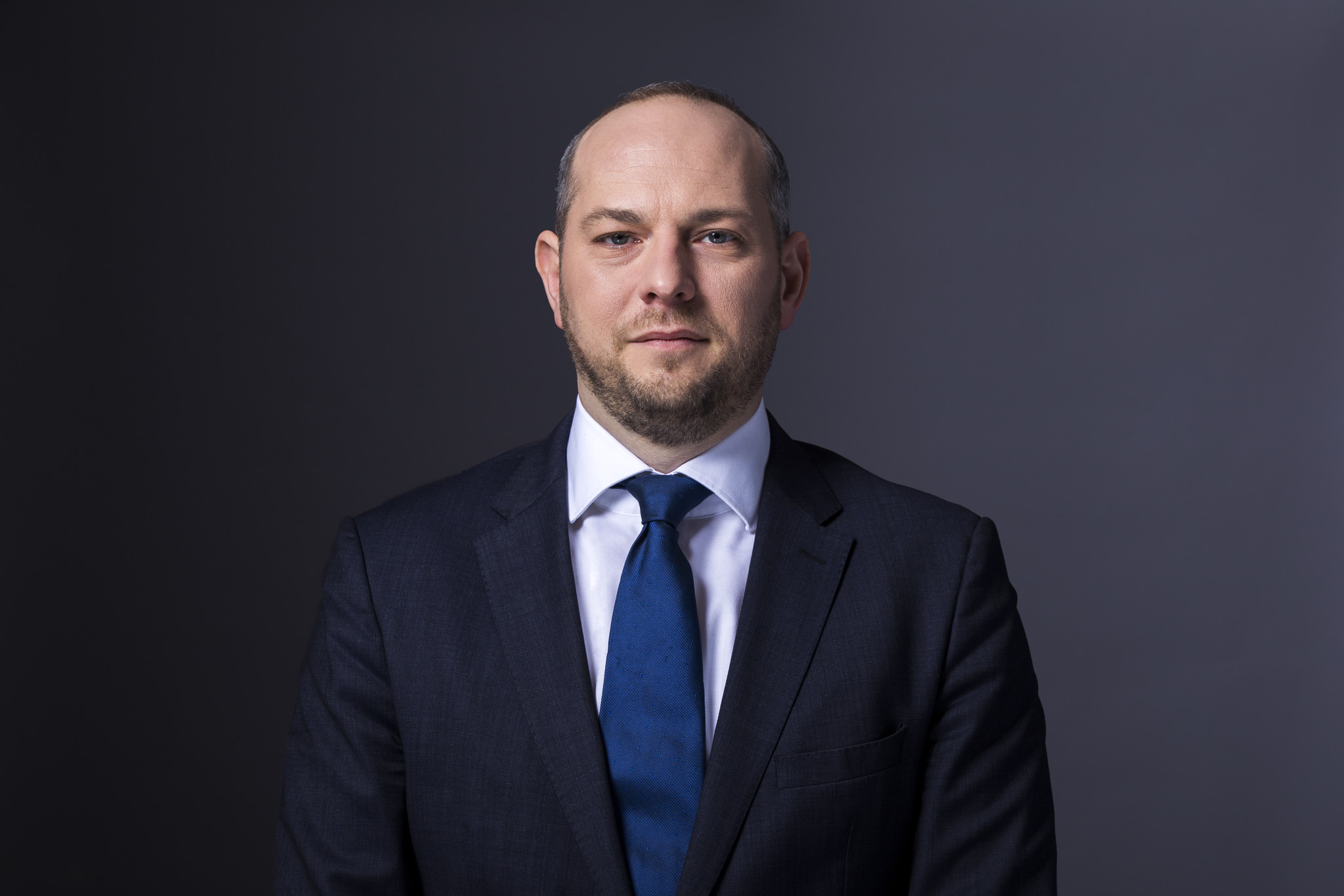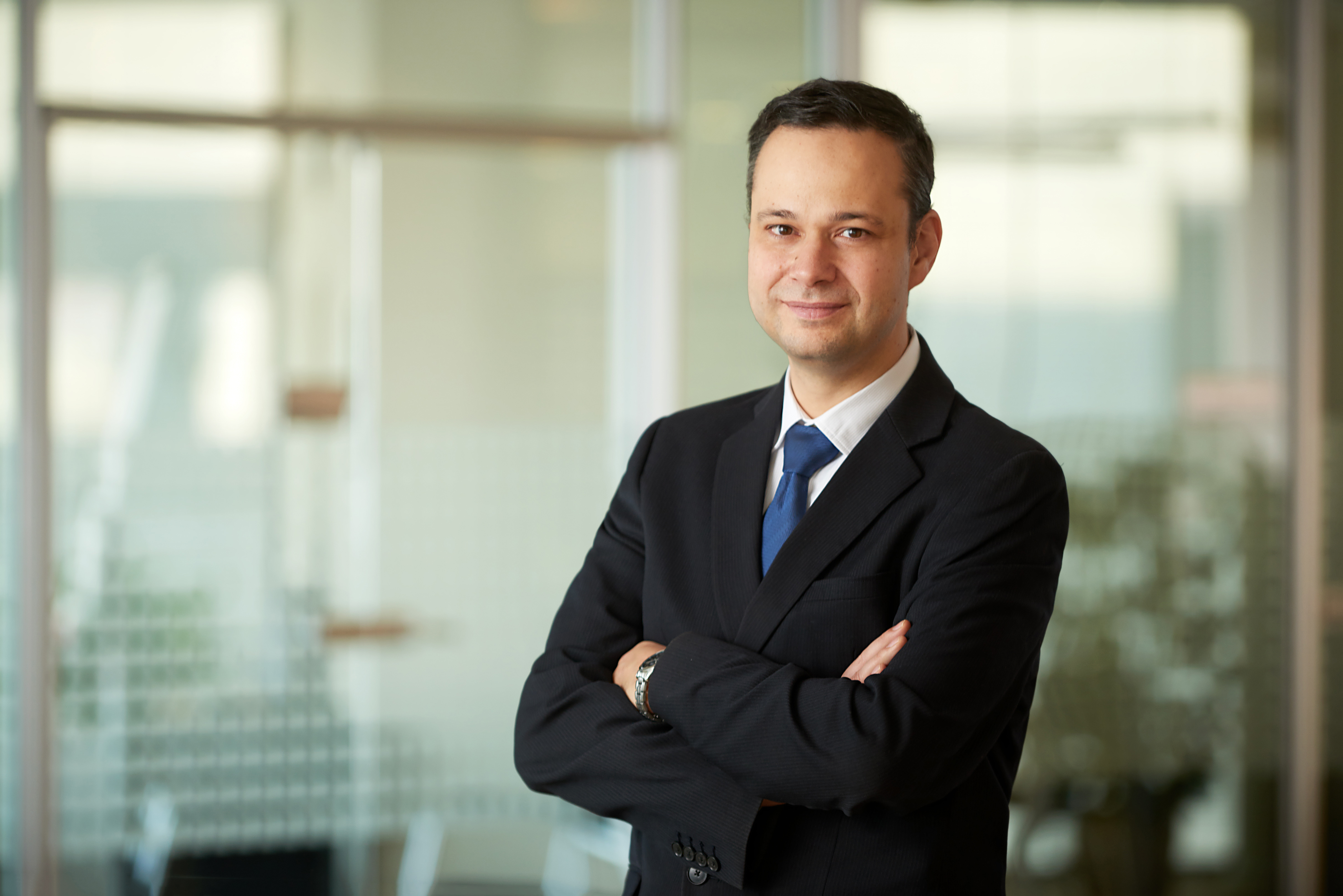U.S. Financial Services in Budapest Drive Collaborative Competition

Among the most valuable treasures of what Hungary’s government calls its “human capacities”, there has never been much doubt that mathematics skills have always ranked pretty close to the top. Little wonder, then, that Budapest boasts four major international financial services firms.
Michael P. Burch
Those four organizations, BlackRock, Citi, Morgan Stanley and MSCI, share two things in common beyond their sector: all are U.S.-head quartered and all are members of the American Chamber of Commerce in Hungary. The quartet even operate a joint project to promote financial services, and the careers it has to offer bright young Hungarians, whether they live here in the homeland or have moved abroad.
We brought the four leaders of these firms together to discuss trends on the market, a conversation that started, inevitably, with the impact of the COVID-19 pandemic, which required a near total move out of the office at an unprecedented speed and scale.
As Michael P. Burch, managing director, country manager and head of Budapest at BlackRock Hungary puts it, what happened in March was a migration “from 16,000 people in 60 offices globally to 16,000 people in 16,000 offices.”
Shared Experience
That is a shared experience for pretty much all of us, with the exception of those involved in the manufacturing and hospitality sectors. What is perhaps more interesting is the path back to the office, and the effects of the second wave.
“BlackRock has been cautious to reopen its offices, but at the same time we wanted to ensure that employees have more flexibility to choose where to work from,” Burch explains. “Since August, our employees can choose working remotely, at the office or a combination of the two. We are keeping strict social distancing measures, require frequent temperature checks and follow a one-way system when moving around the office,” he adds.
Caution, unsurprisingly, is a watchword for all. “While some staff returned to the office over the summer, under strict safety measures, we have continued to monitor the situation closely and in light of the increasing infection rate, remote working continues to be utilized broadly across our Budapest operation,” confirms Norbert Fogarasi, managing director and head of the Budapest office for Morgan Stanley.
Ákos Janza, global head of offices and head of the Budapest office of MSCI, Inc., says an important area of focus has been boosting employee engagement across all of its 35 offices through virtual events, including a series of local townhalls hosted by the global CEO and executive committee, work-from-home training, and a home ergonomics program.
“We have also organized many virtual wine-tasting and trivia events to boost morale and keep employees connected during the pandemic,” he adds. “We currently have about half of our offices open, with roughly 10% occupancy, where employees must follow social distancing procedures, wear masks and adhere to a number of other procedures put in place.”
Kevin A. Murray, CEO of Central Europe for Citi, has often said that protecting employees is always Citi’s top priority. But the client also always remains a vital part of the communication plan. “We put a lot of effort in staying close to our clients and continue to support them in a seamless way through the enablement of digital processes, online webinar events and personal contacts via the various meeting technologies that are available,” he says.

Ákos Janza
Flexible Options
Given the success of remote working, might that not lead to more flexible use of office space long-term? Fogarasi, at Morgan Stanley, says his firm has offered an increasingly wide range of flexible options to colleagues.
“We expect that more of our staff will take advantage of the flexibility [….] in the wake of the pandemic, and significantly more working hours will be completed away from the office than in 2019.” But that’s only one side of the coin. Fogarasi also expects significant growth to continue in the coming years, which, he says, would normally require additional office space.
“We are also re-thinking how we utilize office space and have been on a ‘workplace evolution’ journey since 2018. The overall impact of all of these effects on our real estate strategy is unclear at this point, and it is a topic we are actively evaluating.”
For Murray, this is the dilemma of the technology meets social interaction equation. “I would posit that a major portion of our success was due to the many years we have spent working together, getting to know and understand how each of us operates, and what we might expect of each other in a crisis,” he suggests.
Data Driven
“We are a work-from-office organization and eventually, we would like to return to our offices when the situation allows, perhaps with some additional flexibility to work from home or in some other distributed environment. Of course, today social distancing requires rearrangements of the office space but we are closely monitoring the situation locally, regionally and globally, and all our decisions are driven by detailed data analyses on all important aspects,” Murray says. Just as you would expect from a business dealing with numbers.
Balancing that same equation also rings true for Burch, who admits: “We don’t expect that BlackRock will ever be 100% back in office at any given day. We expect to become more flexible in terms of a split model of working from home and being in the office.” None of which, he says, undermines the key elements of social interaction, collaboration and cultural connectivity.
“We are continuously exploring new opportunities around capacity management and the flexibility of a combined in-office and work-from-home work operation to support our employees.” The office “creates a sense of belonging and an inclusive place where employees can meet, exchange ideas and develop new solutions in a collaborative way,” he adds.
For Janza, this debate is shaping the future right now. “In the past few months, we held interviews, workshops, and focus groups with 300-plus employees and it became clear, very quickly, that this pandemic will not just shape our culture, but also where we work. We use our offices to be productive, collaborate, and host in-person meetings. We believe a combination of office and remote working is the future.” That hybrid future will shape real estate plans and offices will become much more collaborative and open, he says.

Kevin A. Murray
Staff Levels
The key input into the office space calculation is staffing levels. Citi’s Murray is bullish, not least on the back of a year that has seen 50% higher recruitment rates despite COVID.
“Next year will be more challenging as we will begin to feel the full force of the economic hits from global lock-downs in 2020,” he cautions, adding that “competition for new talent will increase in a post-pandemic era, once hiring picks-up again. Then things will get interesting.”
A similar tale is told over at Morgan Stanley. “Currently, we have a number of open positions and are looking for talented applicants in finance, risk analysis and technology fields. Feedback we have received highlights job seekers sincerely appreciate that career opportunities continue to be available at Morgan Stanley in this challenging environment,” says Fogarasi.
Janza says MSCI initially “planned for the worst to protect our clients and employees. However, our sales pipeline remained strong and client engagement remained robust and dynamic. Nonetheless we remain cautious that the operating environment remains unpredictable. In any case, we continue to believe our all-weather subscription-based model will hold up well as it has.”
Burch admits BlackRock continues to have “ambitions to grow our Budapest presence further as we continue to be impressed with the talent we find locally. This year we have been doing selective hiring only and our focus was on adaptation and our current staff to get through this pandemic in the best possible way. For next year, we expect to continue to expand in Budapest by shifting the majority our 2020 growth plans to the 2021 post-COVID period.”
Competitive Colleagues
All four of our companies are competitors, not least, as Murray says above, when it comes to finding the best talents. Is their collaboration to promote the industry not somewhat at odds with that?
“The original idea was to promote working, living and studying in Hungary. We wanted to promote our industry, to attract Hungarian professionals back from abroad, and to show foreign financial experts this amazing country,” Janza explains.
“We support leading sophisticated investors around the world through our investment solutions and tools. We compete with other firms for talented professionals. Some of these competitors are also valued clients. People interested in finance can and will find their dream position in Budapest,” he promises.
Burch argues that acting together gives the four firms greater reach. “Many Hungarians currently living abroad are looking to come back to Hungary, while many non-Hungarians have also realized that Hungary is a great place to live, have a family and a career. By cooperating on events (organized with Hungarian embassies in European capitals to attract Hungarians back to Hungary) jointly with AmCham and the Hungarian Investment Promotion Agency, we can have a positive impact not just for us as companies, but also for Hungarian society and the economy as well,” he adds.
“It is not usual at all if you consider our roots in the U.S. financial industry,” Murray points out. The main objective is to enlarge the pool of available talent for all. “We work together on projects, namely making people aware of jobs and careers in our industry; attracting Hungarian students and the diaspora back home, and interested parties to the attractions of a career in financial services and Hungary.”
That’s a view echoed by Fogarasi, like Janza a Hungarian who has worked abroad. “When you take a step back, you can see our common interest is to be part of a thriving market ecosystem. We believe it is not enough that Budapest be a tech hub or a quantitative hub, we increasingly need it to be a financial services hub capable of attracting top talent across related fields. We’ve reached the point where we have to attract the right talent to Budapest from other markets.”

Norbert Fogarasi
Diversity and Inclusion
Something else the companies share is making diversity and inclusion a priority, if only, as Burch says, because “it is critical to our success.” All new joiners to his Budapest office participate in an initiative that helps employees understand how unconscious bias works and how to mitigate it. BlackRock is also investing heavily in local programs, for example offering opportunities for women with children to return to the workplace, and partnering with local NGOs to help to promote inclusion in broader society as well.
At MSCI, there are local branches of its global Employee Resource Groups, including the Women’s Leadership Forum, MSCI Pride and the Black Leadership Network, which organize events to raise awareness, educate, and connect people. The firm is also joining Hungary’s “We Are Open” NGO that promotes diversity and inclusion, and helps companies become more open by offering services, workshops, talks and consulting.
Morgan Stanley has a particular focus on promoting STEM subjects, particularly to girls, but it also has family-friendly campaigns to get mothers back to work, supports those returning from career breaks, promotes multicultural inclusion for the Roma community and raises awareness for the less abled.
Citi has a similarly broad palette, including a Reverse Mentoring Program which, Murray says, allows “different generations to freely interact and exchange ideas, get to know more about each other’s perspectives, goals, motivating factors and helps them to connect, breaking generational barriers and fostering understanding.” This, he feels, is critical to any success in operational resilience initiatives.
“We have, at one end of the spectrum, a group of employees that has seen it all and at the other end is a group who are very skilled at using technology to improve our response to problems, crises and the like.” He is also an active mentor in an international mentorship program supporting the development of female leaders.
Evolution
All of the companies have seen major changes to their operations in Hungary. Citi is the longest established, being one of the first major international banks to open its doors in the country 35 years ago. Since then it has added a Citi Solutions Center, in 2005, with 57 people in ID Administration and Finance.
“In total, over 2,300 professionals are working in our Solutions Center in Budapest in key areas of finance, HR, IT, quantitative analysis, risk and security, supporting 32 languages across 92 countries and hosting one of three global Cyber Security Fusion Centers,” Murray reports.
BlackRock is at the other end of the spectrum, having opened it office three years ago. “One of our greatest achievements, of which we are very proud, is the development of emerging talents locally, who are taking over leadership roles across the region and even globally,” says Burch.
MSCI established its Budapest office 13 years ago. “Our focus was first on engineering and finance, then we expanded into financial research,” explains Janza. “Today, most of our 500 staff is directly contributing to product development, digitalization and high-value services.”
Morgan Stanley was just ahead of MSCI, opening its Budapest office in 2006, initially as a mathematical modelling center with 30 employees. Over the past 14 years, technology and analytics have been added and it now employs around 2,000.
“Morgan Stanley has invested significantly in Budapest and the technology capabilities here, and many teams and core functions have now established themselves in Hungary,” Fogarasi says.
Our U.S. Financial Services Panel
Michael P. Burch, managing director, country manager and head of Budapest at BlackRock Hungary; Kevin A. Murray, CEO of Central Europe for Citi; Norbert Fogarasi, managing director, head of the Budapest office at Morgan Stanley; and Ákos Janza, managing director, global head of offices, head of the Budapest Office of MSCI, Inc.
SUPPORT THE BUDAPEST BUSINESS JOURNAL
Producing journalism that is worthy of the name is a costly business. For 27 years, the publishers, editors and reporters of the Budapest Business Journal have striven to bring you business news that works, information that you can trust, that is factual, accurate and presented without fear or favor.
Newspaper organizations across the globe have struggled to find a business model that allows them to continue to excel, without compromising their ability to perform. Most recently, some have experimented with the idea of involving their most important stakeholders, their readers.
We would like to offer that same opportunity to our readers. We would like to invite you to help us deliver the quality business journalism you require. Hit our Support the BBJ button and you can choose the how much and how often you send us your contributions.








